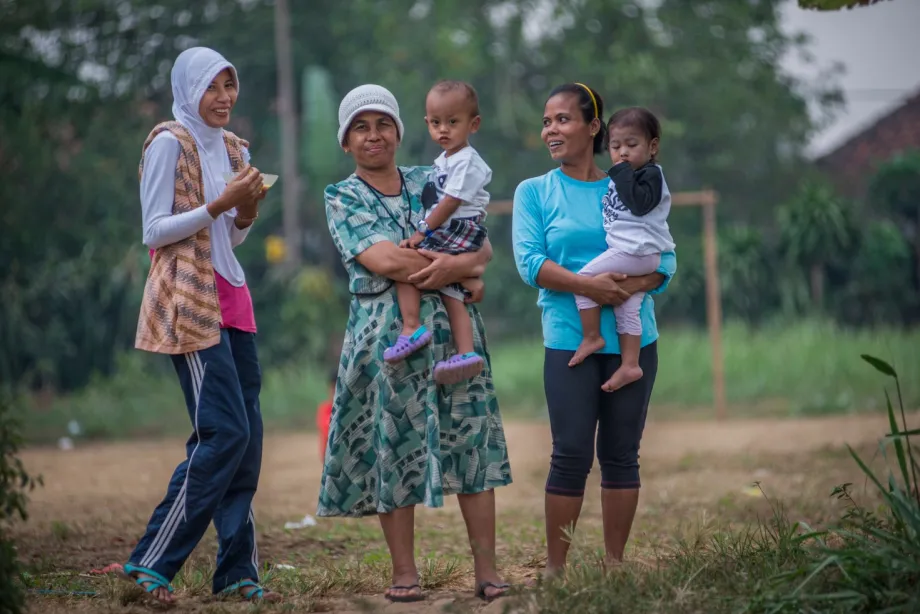
NGOCSTIP – Human trafficking is a transnational crime that involves the illegal trade of people, often through force, deception, or coercion. This crime is typically aimed at exploiting victims for forced labor or commercial sexual purposes. The global community observes World Day Against Trafficking in Persons on July 30 each year to raise awareness about this growing menace. Dr. Sri Endah Kinasih, an anthropology lecturer at FISIP UNAIR, shared her expert views on the rising issue of human trafficking in Indonesia.
Human trafficking has a long history, dating back to the 15th to 19th centuries. During this time, the transatlantic slave trade was a major driver of human trafficking. The migration of laborers from West Africa to the Americas marked the beginning of widespread human trafficking practices. “If we trace it back, human trafficking began during the migration process, and it has continued ever since,” Dr. Endah explained.
This criminal practice did not only start in recent decades. It has deep historical roots tied to the forced migration of people. In the present day, however, the focus is on how human trafficking continues to harm vulnerable populations, particularly women and children. These groups, often viewed as weaker and more vulnerable due to patriarchal cultural norms, are the primary victims of trafficking for sexual exploitation or forced labor.
“Read about: The Role of Education in Preventing Human Trafficking: Resources and Strategies”
Women and children face a disproportionate impact due to societal structures that see these groups as weaker, more defenseless, and easier to exploit. Perpetrators often coerce or deceive these individuals, using promises of a better life or forceful manipulation to trap them.
“Women and children are particularly targeted because of their perceived vulnerability,” Dr. Endah explained. This vulnerability increases their susceptibility to exploitation, as traffickers often see them as easy commodities for illegal trade. Many of these victims end up being exploited sexually, while others are forced to work in harsh and dehumanizing conditions.
Indonesia has enacted several laws to address and combat the crime of trafficking in persons. These include Law No. 23/2002 on Child Protection, Law No. 21/2007 on the Eradication of Human Trafficking, and Law No. 39/1999 on Human Rights. Dr. Endah stresses the need for effective enforcement of these laws to reduce the growing problem.
“The government must enforce these laws strictly to prevent further exploitation of vulnerable populations,” Dr. Endah emphasized. While laws play a critical role in solving the issue, Dr. Endah also highlights the essential role of academics, educators, and civil society in tackling the problem. By fostering a culture of empathy and protecting the rights of women and children, efforts to combat trafficking can become more effective.
“Read more: Effective Ways to Address Growth Hormone Deficiency in Children”
As a scholar, Dr. Endah believes that academics have an important role in both raising awareness and providing solutions to the trafficking crisis. “Academics should play a role in curbing human trafficking by offering their knowledge and research,” she said. Educating the public about the gravity of the issue and providing training on identifying potential trafficking situations can be pivotal in reducing this crime.
Moreover, she highlights that it is essential to protect victims as human rights defenders. “Human trafficking is a human rights violation, as victims are treated as commodities—bought, sold, trafficked, and resold,” she explains. By acknowledging the inherent dignity of each person, society can take a stronger stand against trafficking.
While Indonesia has made strides in addressing human trafficking, international collaboration and local action are both necessary. Global efforts to fight trafficking, such as international treaties and organizations dedicated to the issue, provide valuable frameworks. However, each country, including Indonesia, must adapt its strategies to local realities.
In addition to national legislation, there is a need for comprehensive approaches that involve community-based initiatives, grassroots organizations, and law enforcement working together to reduce trafficking cases. Strengthening partnerships between the government, non-governmental organizations (NGOs), and international bodies can make a significant difference in preventing trafficking.
Trafficking in persons doesn’t just affect the victims; it weakens the fabric of society. It perpetuates cycles of poverty, inequality, and exploitation. Victims often experience physical, mental, and emotional scars, making it hard for them to reintegrate into society. Furthermore, trafficking fuels other criminal activities, creating a ripple effect that harms communities and economies.
Awareness and action at all levels of society play a crucial role in fighting this crime. By continuing to educate the public, enforce laws, and support victims, Indonesia can work toward reducing the prevalence of trafficking in persons and ensuring justice for those affected.